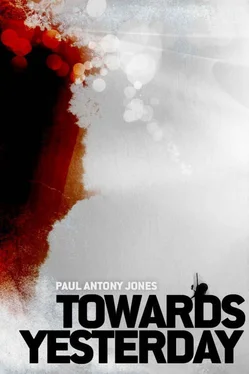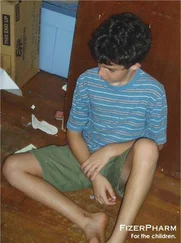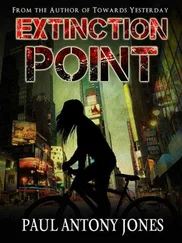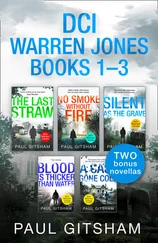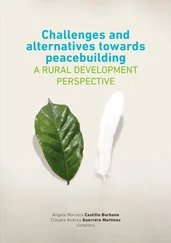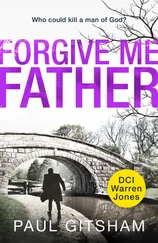Grabbing a pair of leather gloves from the shelf where Simone kept her gardening tools and rose food, Jim started pulling and shifting the debris.
The heat was beginning to take its toll. His muscles ached with each piece of debris he moved from the pile to the clear side of the garage. Covered in grime and dirt, dust had crusted inside his nostrils and scoured his dry eyes. He was exhausted, but within minutes a glint of dust-covered chrome rewarded his toil. Kneeling down on the pile of rubble Jim hurriedly threw the remaining covering of debris aside, uncovering Simone’s bike still attached to its storage rack, its four fastening pins locked to the remnants of the plasterboard that had once been the ceiling.
With a final tug, he pulled the bike free of the mangled storage rack and hefted the scratched and bent bicycle over to the opposite side of the garage.
A broken floorboard had punched through the spokes of the bike’s badly buckled rear wheel ripping them from the wheel’s rim. Now they protruded outwards like the staked ribs of a vampire. The front tire was flat and with the back wheel so badly damaged, the bike was unridable. He would just have to hope for better luck with his own bicycle. Leaning the useless machine against his workbench, Jim headed back over to the pile of debris.
His bike was in a little better condition, and by the time he pulled it free of the remaining debris he could see the front tire had ragged gashes in several places and the front fork, instead of jutting forward as it should, now slanted back until it almost touched the pedals. Other than that, the bike looked to be in working condition.
Between the two damaged bikes, Jim realized he had one working one; it would just take a little cannibalization. Rummaging through a toolbox he pulled out a couple of wrenches that looked like they would fit the locking nuts keeping the wheels fixed in place. He released the front wheel from Simone’s bike and switched it out with the one from his bike. Next, he grabbed the hand pump and started inflating the flat tire.
Ten minutes later, and much to his relief, the tire remained inflated.
* * *
The fastest route to Thousand Oaks from the Valley would be via the 101 Freeway west, and as Jim Baston headed onto the slip-road that fed off Valley Circle Drive and onto the 101, he could see it wasn’t going to be an easy ride. Jim guessed he had probably about an hour of light left. The first hint of dusk was already discoloring the sky, turning the blue to a deep purple.
Completely blocked by a line of abandoned cars that snaked around the curling on-ramp and down to the freeway below, Jim left the road and pedaled his bike up onto the grass verge running alongside the road, skirting around the crush of vehicles.
Things were worse on the freeway.
Cresting the gentle rise of the slip-road, he brought the bike to a hasty stop, gazing out over a sea of glittering quicksilver.
The ghostly light of the setting sun glinted off the roofs of thousands of crushed, burnt-out and abandoned cars, trucks and big-rigs, lending an eerie orange cast to the terrible panorama that shimmered and stirred in the heat haze floating above the river of destruction. The smell of melted plastic — like toy soldiers left too long under the midday sun — wafted to him on the breeze.
“Jesus wept.”
It was the most terrifying thing Jim had ever laid eyes on; this total annihilation of thousands of vehicles spoke more poignantly to him of the frailty of human life than all the bodies and devastation he had seen that day. It reminded him of news reports he’d seen when he was a kid during the first Persian Gulf War. Toward the end of the war, the coalition air-force had bombed the Iraqi army as they retreated along the open road to Basra. The resulting annihilation had left miles of eviscerated, burned-out vehicles. The charred bodies of Iraqi soldiers had been barely distinguishable as having once been human.
The 101 Freeway had become a road straight to Hell.
Drivers had found themselves suddenly and inexplicably behind the wheel of a vehicle speeding along some long forgotten highway on a trip that was almost a quarter century distant, for reasons that had become ancient history. Only an instant earlier they had been busy getting on with their everyday lives twenty-four years into the future. Caught utterly by surprise — and with the advances in vehicle AI safety protocols which would virtually eliminate highway accidents, still a distant invention — those unfortunate enough to find themselves in their vehicle on this fateful day had attempted to avoid other cars and trucks. Most had probably instinctively hit the brakes or simply waited for the vehicle’s nonexistent AI to kick-in and bring them to a safe stop. Instead, they had careened across each other’s lanes and this… this carnage was the result. Fires had erupted and swept rapidly over the vehicles, with many of their occupants still trapped inside and unable to escape from the oncoming firestorm.
Maybe Simone is in one of these tin can coffins ?
No! He could not contemplate that. If she were, he would never know.
It had taken years of pain and denial, of the mental equivalent of self-flagellation throughout those years, but finally he realized Simone had been right. Consumed by his own anguish and self-pity over the death of Lark, he had used the emotion as a wedge to drive them apart. Youth is wasted on the young . Boy, was that ever right, but now he had a second chance to prove he was wrong and he knew that Simone was not one of the dead who lay in this vast, metal, tomb.
She was alive, she had to be, and he was going to find her.
* * *
Whispers !
The mass of twisted metal had found a voice, and now it murmured constantly to Jim as he rode his bike between overturned campers and the shells of burned-out cars.
Beneath the lavender California sky, the cars had begun to finally cool. As they surrendered their heat to the evening air, their metal bodies began to creak, squeak and crack. Each expansion and contraction of the day-long heated metal sent a million vowels and consonants soughing and sighing into the air like dying butterflies.
It was an uncanny sound. To Jim Baston’s exhausted mind, it sounded as though the occupants of the cars were chattering in their metal coffins, an eerie susurration of which he was certain he was the subject.
Who are you? — Help us! — Why did you live ? the dead whispered.
The questions skittered through the air to him; a mirror of his own exhausted mind’s thoughts of why he had survived when so many others had not.
He avoided looking into the brutalized wrecks after the first few; the seared bodies of the occupants were mostly unrecognizable, the fire having thoroughly removed any trace of humanity from its victims. The remains were naked, sexless lumps of charcoal resting on beds of springs or melted into dashboards… for the most part. But here and there a glimpse of an unburned arm jutting through a window space or the half burned torso of a victim clawing their way across the freeway illustrated the fact that not all of the day’s victims had died quickly or quietly in their vehicles.
The stench was truly awful, detectable even through his muck-caked nostrils, his olfactory receptors seared by the chemical pollution he had inhaled throughout most of the day. The pungent, reeking miasma of dead humans and dead machines hung in the noxious air, overwhelming his senses. It seemed that in death the fusion of burned human flesh and boiled bodily fluids had comingled with the oil and gasoline, melted rubber and seared metal to form a smell that had never before existed on this planet; it was the stench of defeat, of the destruction of mankind and its servile machine culture.
Читать дальше
